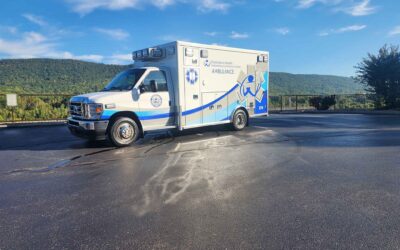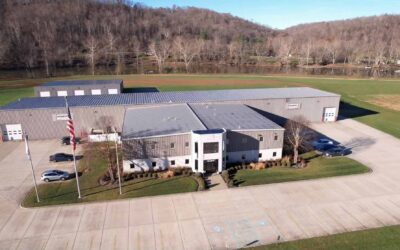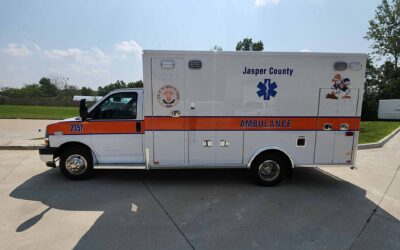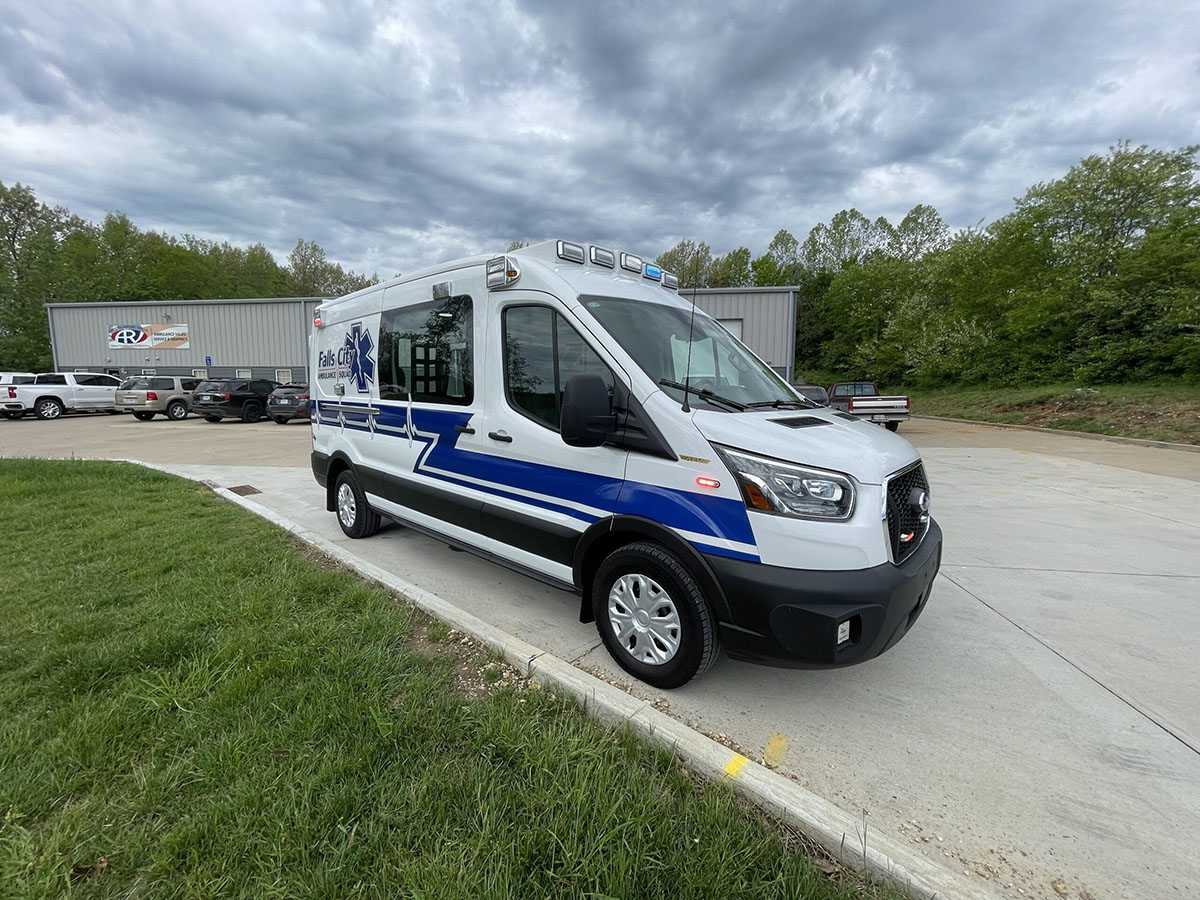
AEV built this Type 2 ambulance on a Ford T250 4×2 chassis for Falls City (NE) Volunteer Ambulance Squad. (Photos courtesy of American Response Vehicles.)
By Alan M. Petrillo
Falls City (NE) Volunteer Ambulance Squad provides basic life support (BLS) emergency response and transport for the city of Falls City, which is the county seat of Richardson County, and also provides long distance transfer of patients from the local Community Medical Center.
The squad operates 24/7 from one station with 15 volunteers, consisting of 10 emergency medical technicians (EMT) and five drivers. The squad celebrated its 50th year in service in May of this year.
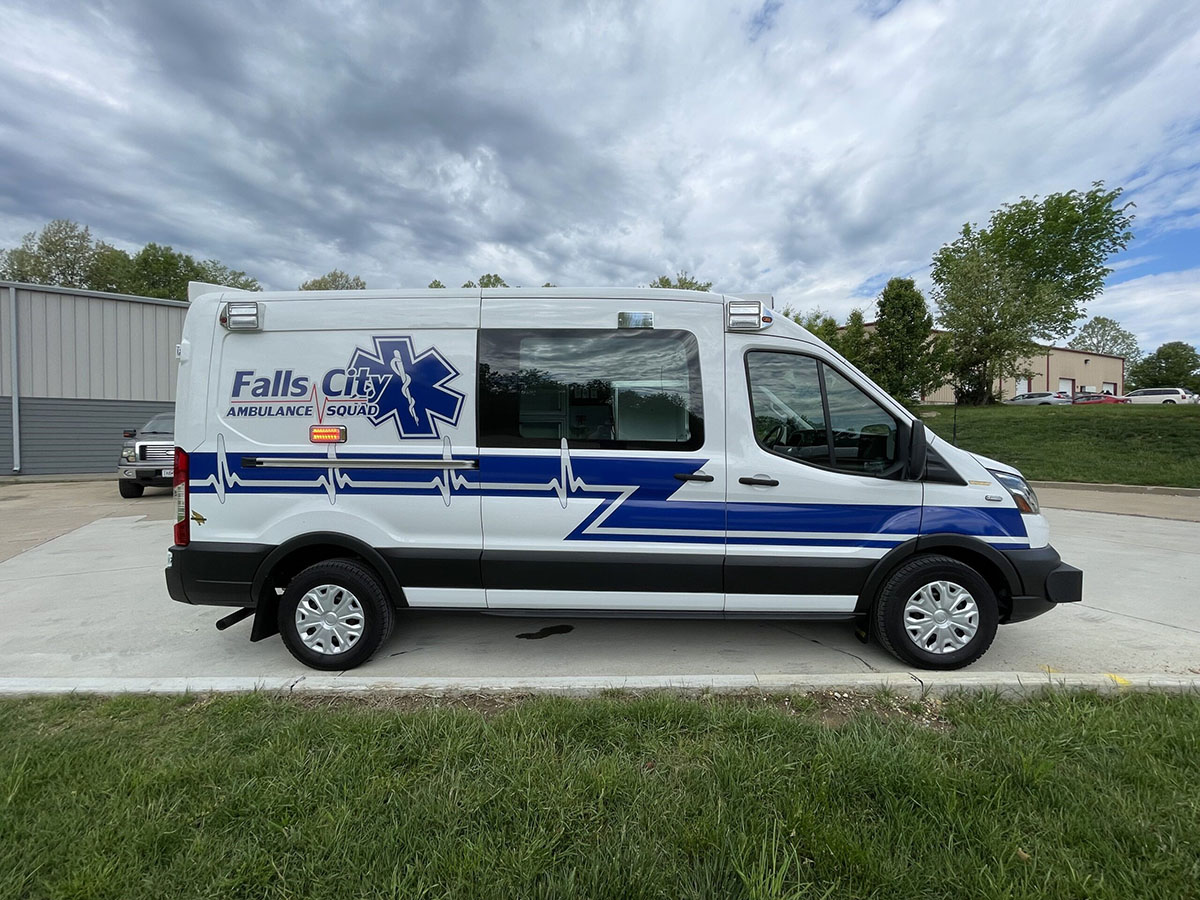
The Type 2 has proven to have a smoother ride for patients than a Type 1 rig and gives the squad better gas mileage.
“We currently have two American Emergency Vehicles Type 1 ambulances on Ford F-550 chassis, running one on emergency response in the town and the other for transport,” says Robert Olberding, the squad’s president and also an EMT. “We wanted to get a new rig that provided an easier, smoother ride for transport patients, and also one that would be more economic to operate and give us better gas mileage.”
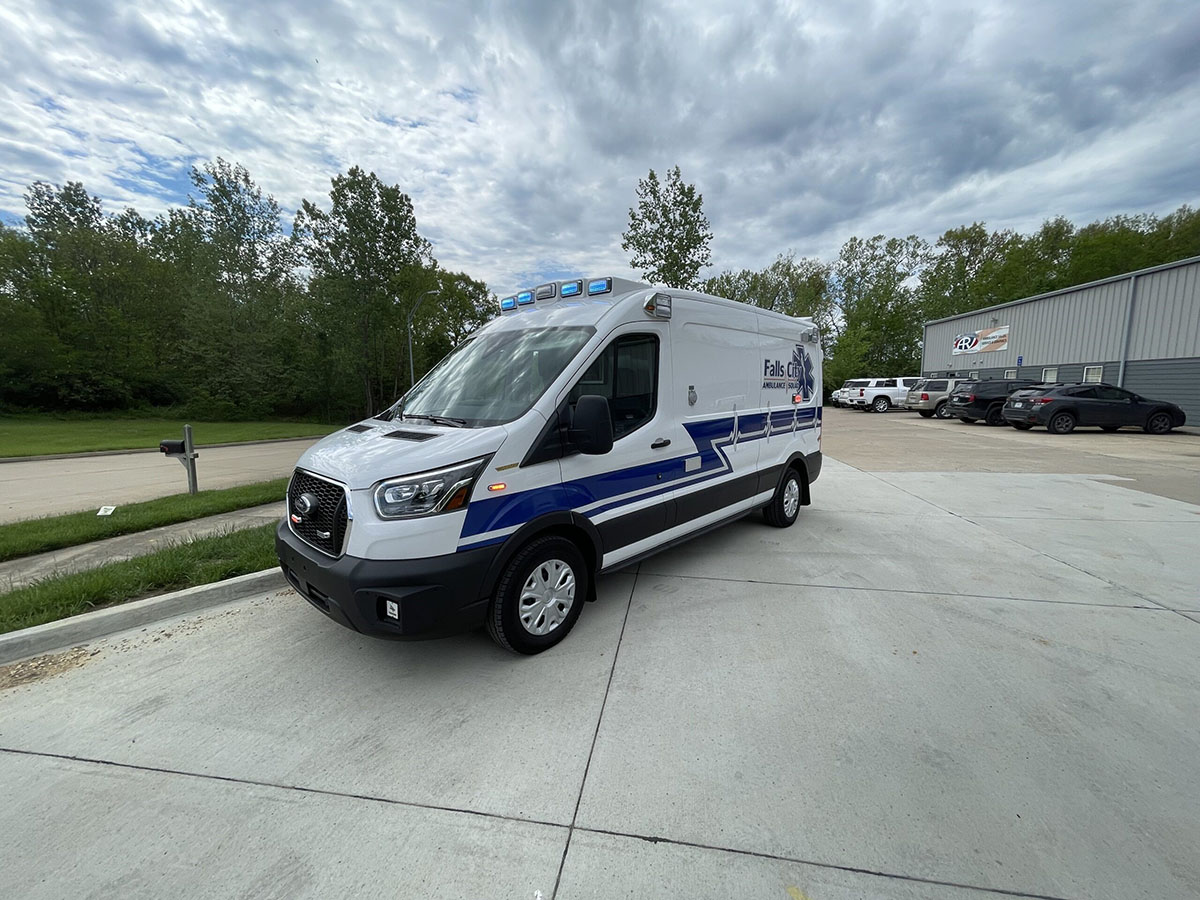
Whelen LED series 700 emergency lighting is built into the top front of the patient module.
The Falls City squad went to American Response Vehicles (ARV) where they had purchased their Type 1 rigs and talked with Tim Leitnaker, ARV’s district sales manager, about the options that were available. “The president asked me about the pricing and economics of a Type 2 ambulance compared with a Type 1,” Leitnaker says, “and also about the delivery times for both types. The squad ultimately chose to go with a Type 2 ambulance.”
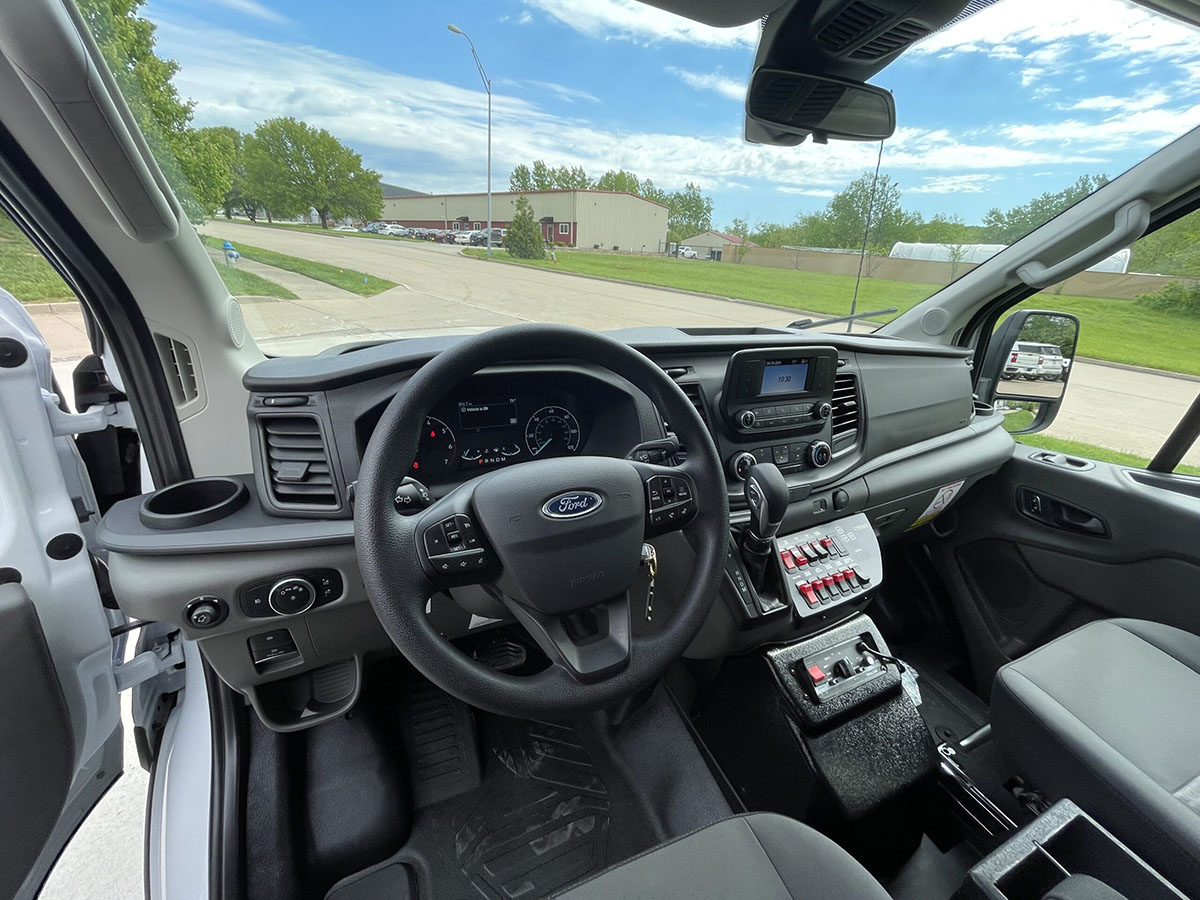
The cab of the new Falls City Type 2 rig.
Leitnaker says the new rig for Falls City is an AEV Type 2 custom rig built on a Ford T250 4×2 chassis powered by a 3.5-liter EcoBoost gasoline engine. The Type 2 does not have a curb side entry door to the patient module, as that area is taken up by a narcotics storage cabinet on the front wall of the box, he says. There’s also storage on the street side interior wall in place of a CPR seat, an action area to the side of the attendant’s seat at the head of the Stryker PowerLOAD base and PowerCOT, and one curb side seat, with both seats protected by four-point harnesses, Leitnaker adds.
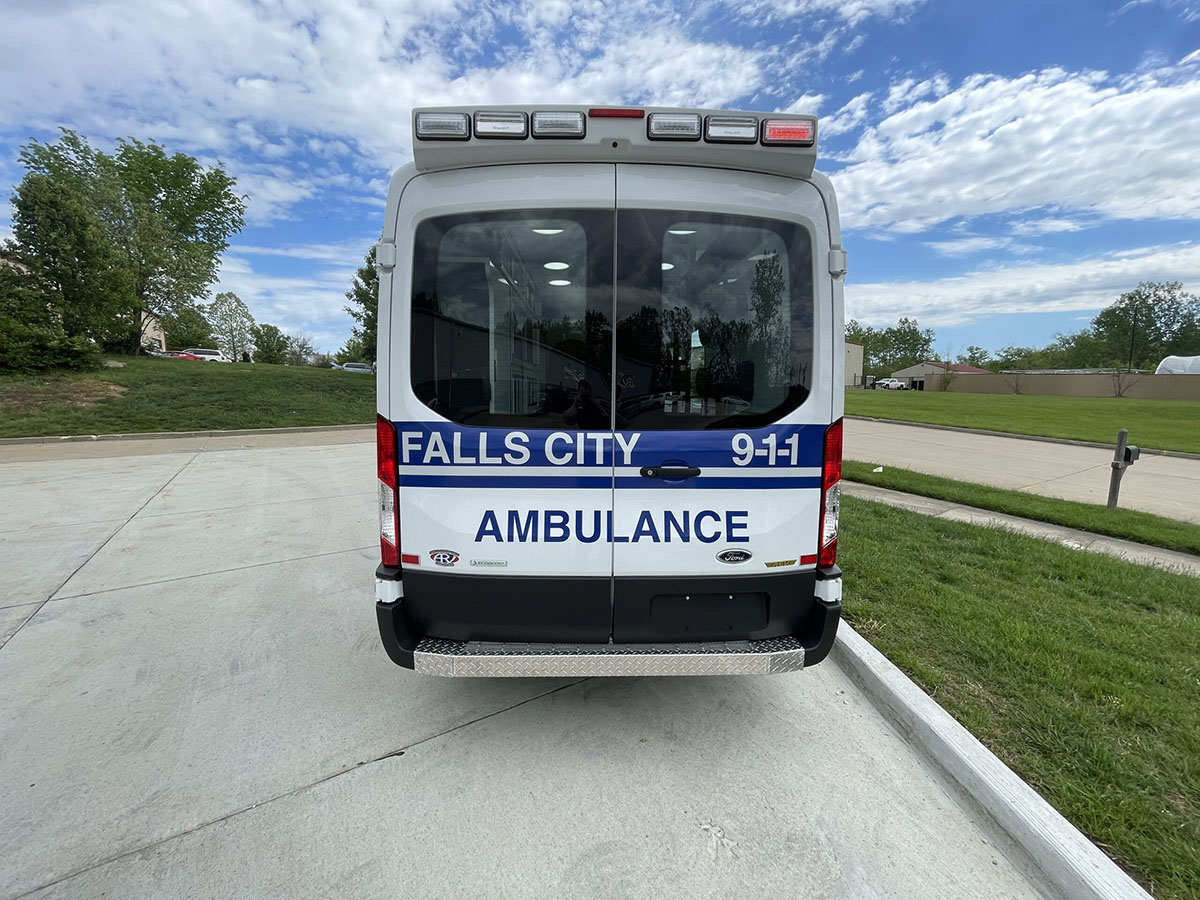
The Type 2 has Whelen LED 700 series warning and scene lights on a rear spoiler.
The new rig has an electric driver’s seat, custom center console, running boards, power door locks, a backup camera, a Zico electric oxygen tank lift, a Cast Products 100-watt siren speaker, and a 20-amp auto eject port, he says. Lighting on the Type 2 includes Whelen LED 700 series emergency lighting including across the top front of the patient module in place of a lightbar, Whelen LED 700 series scene lights, and Whelen LED 700 series warning and scene lights on a rear spoiler.
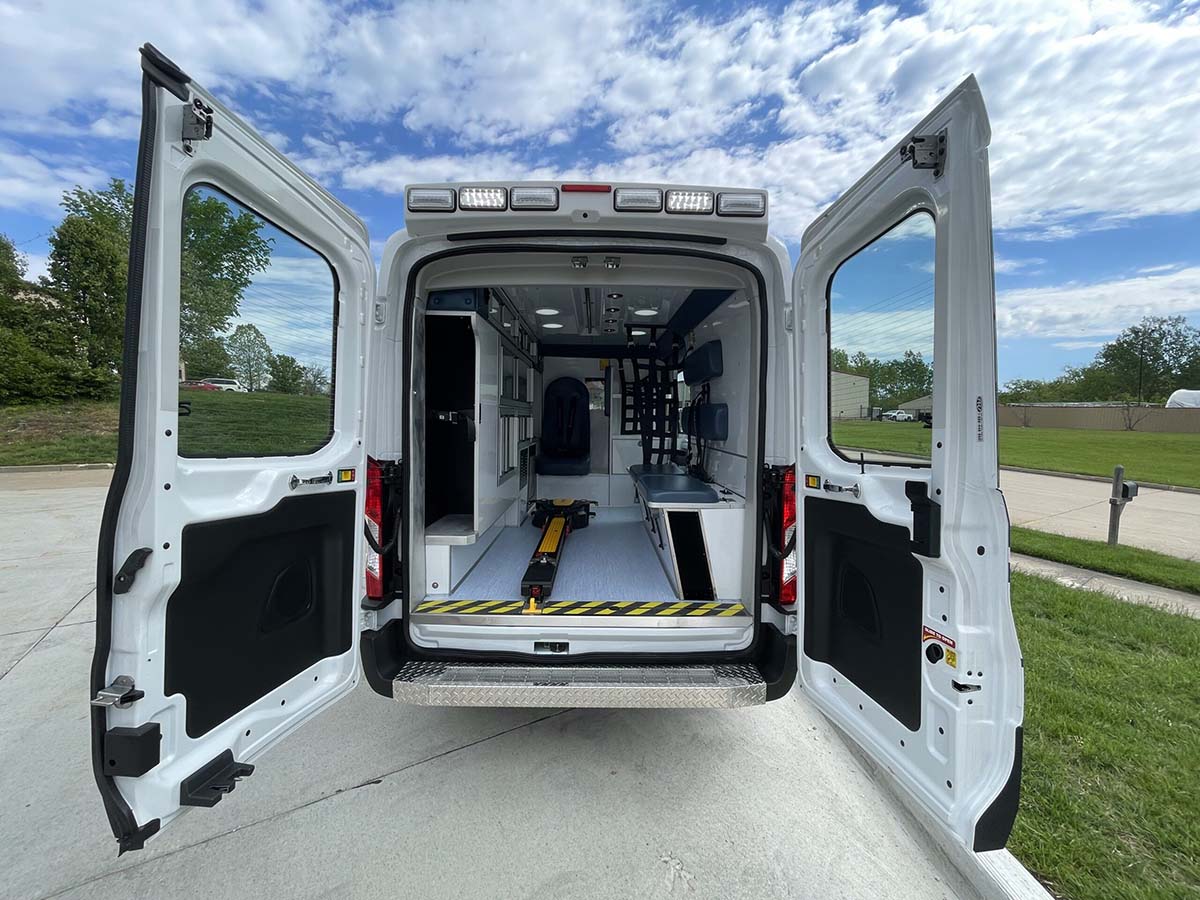
The Falls City Type 2 is set up to carry a Stryker PowerLOAD system and a PowerCOT.
Olberding says the squad members like the Type 2 for its smooth ride, as well as the ease of maintenance, and the fact that its fuel economy “is significantly better than either of our Type 1 ambulances. We had to make adjustments in the back of the rig because space is more limited than in our Type 1 units, but the ride is much smoother, which is a big benefit for our patients.”
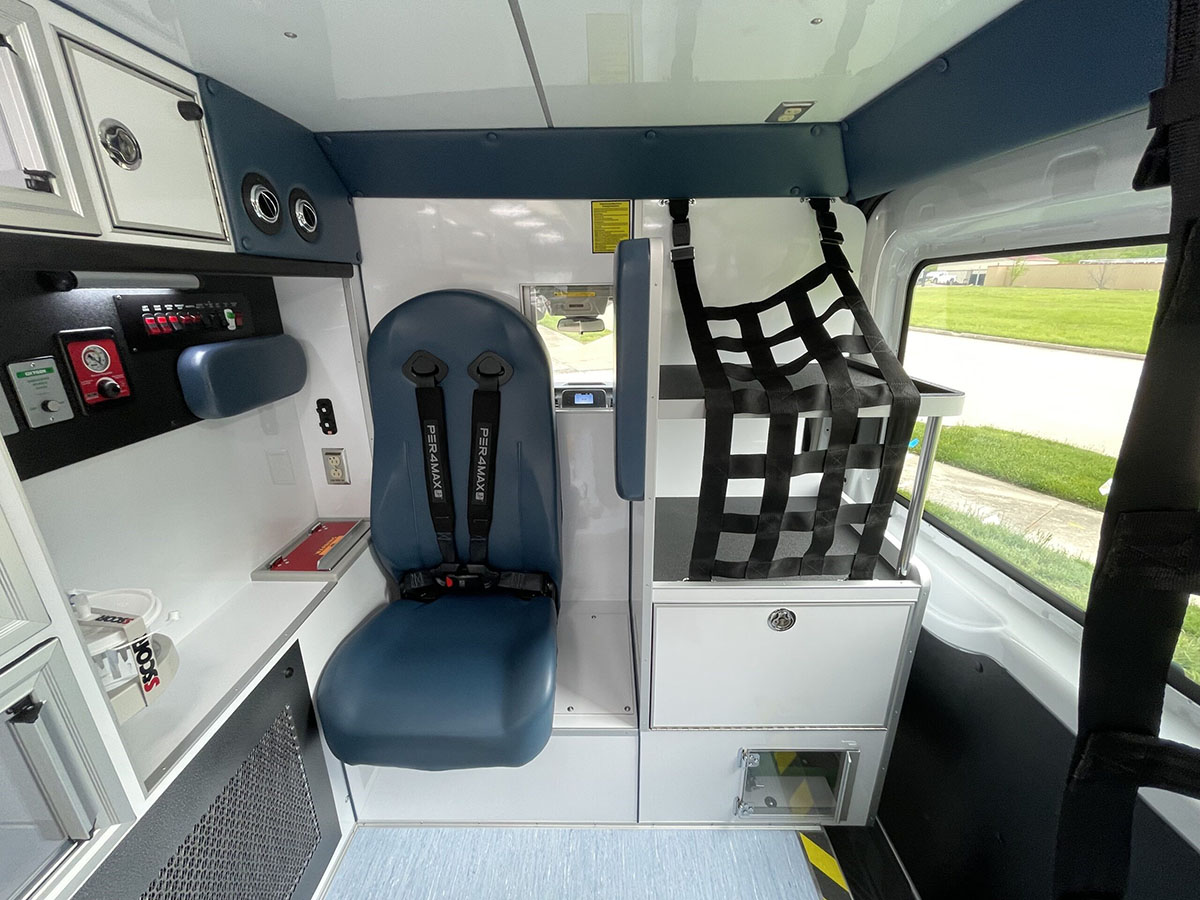
The attendant’s seat at the head of the cot, action area to the left and narcotics storage to the right.
He notes that the squad now has one Type 1 running as first out on EMS calls, with the other Type 1 as a backup unit, while the Type 2 is used as the squad’s long distance patient transfer vehicle. “When we work with Community Medical Center to transfer one of their patients, they provide a paramedic to ride the back of the truck with the patient,” he observes.
ALAN M. PETRILLO is a Tucson, Arizona-based journalist, the author of three novels and five nonfiction books, and a member of the Fire Apparatus & Emergency Equipment Editorial Advisory Board. He served 22 years with the Verdoy (NY) Fire Department, including in the position of chief.

